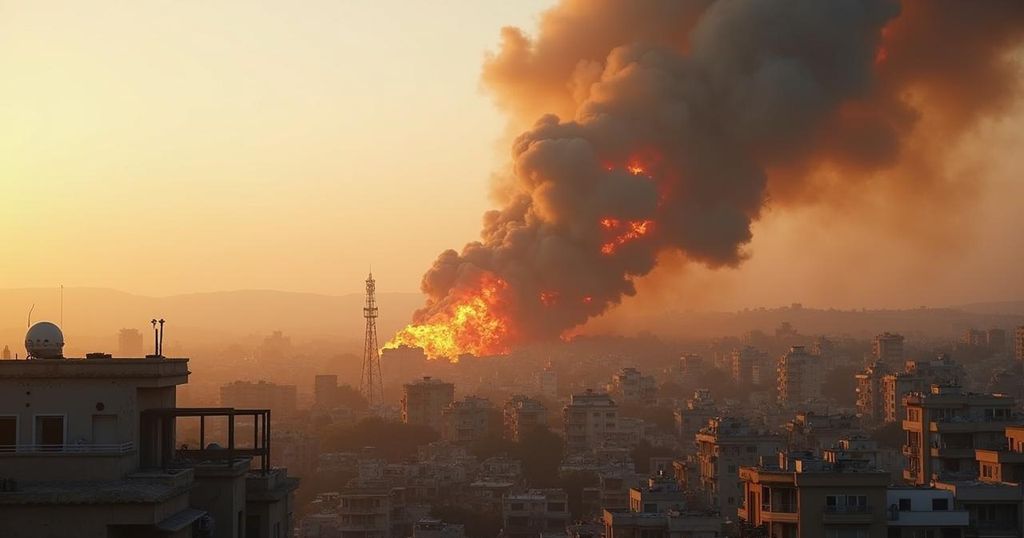Recent Israeli airstrikes have resulted in multiple casualties in Gaza, with local sources reporting at least 20 deaths. Hezbollah is preparing for extended hostilities in southern Lebanon following significant losses in leadership. The IDF reported extensive operations targeting Hezbollah’s military assets, intensifying the conflict amid rising criticisms of Israel’s actions and calls for international response.
In the latest developments of the ongoing Middle Eastern conflict, tensions between Iran and Israel have escalated significantly. An Israeli airstrike on Sunday night tragically resulted in the deaths of at least 20 individuals, including children, at a school in central Gaza, as reported by local hospitals. Concurrently, Hezbollah is reportedly bracing for a protracted conflict in southern Lebanon following the elimination of its top leadership by Israeli forces, who have launched extensive airstrikes targeting approximately 200 Hezbollah positions, as stated by the Israel Defense Forces (IDF). These airstrikes were described as localized and executed with precise intelligence aimed at destroying terrorist infrastructure, weapon storage facilities, and launchers used by Hezbollah. The operational intensity is indicative of a strategic military response by Israel. The situation remains fluid, with ongoing updates detailing military engagements and political ramifications in the region.
The Middle East has long been a flashpoint of geopolitical conflict, characterized by ongoing hostilities between Israel and various regional factions, notably Hezbollah and Iran. Israel’s military actions are often framed as necessary for national security, particularly in response to perceived threats from Hezbollah, which has gained notoriety for its missile capabilities and ties to Iran. The humanitarian implications of these military operations have drawn international scrutiny, especially concerning civilian casualties in conflict zones such as Gaza. Additionally, the role of international peacekeeping forces, such as UNIFIL in Lebanon, has become contentious, with calls from Israeli officials for re-evaluation of their mandate amidst rising hostilities.
In summary, the ongoing hostilities represent a deepening crisis in the Middle East, with significant implications for regional stability and international relations. The recent military actions by Israel have drawn attention to the humanitarian consequences of the conflict, while the responses from Hezbollah indicate an anticipated escalation in the militarization of the region. As global actors weigh in with political and diplomatic measures, the potential for a prolonged conflict looms large, highlighting the necessity for sustained international engagement and humanitarian considerations.
Original Source: www.deccanherald.com






